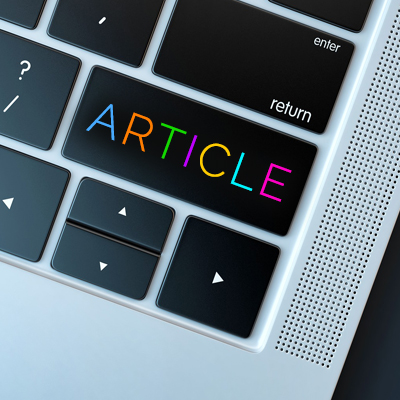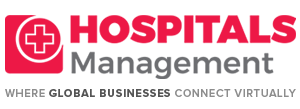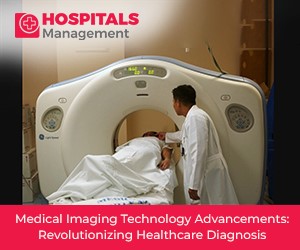AI can solve information overload and other Healthcare Problems

It is a disruptive time in healthcare, with technological advancements driving many changes. Artificial intelligence (AI) holds particular promise in improving the patient and clinician experience, providing decision support, automating and accelerating tasks like clinical documentation, and aiding in planning and predicting organisational and patient futures.
As we connect new data sources, the sheer volume of patient data has become a critical issue. We have created the problem of presenting too much data, or rather too little insight, to our clinicians and other stakeholders. This inefficiency hinders us from making well-informed choices. For example, the inability to detect data patterns compromises early disease identification, personalised treatment strategies, and overall patient outcomes.
With AI algorithms and Machine Learning (ML) models, healthcare systems can rapidly analyse vast amounts of patient data. They can identify intricate patterns, trends and correlations that are virtually impossible to discern manually. Generative AI also has great potential to shift through piles of documents, summarise effectively and write eloquently. With AI and ML, healthcare professionals can take advantage of large amounts of data without wasting time sifting through irrelevant or duplicative information.
However, the true potential of AI hinges on data quality – data that is reliable and accessible. High-quality, credible data is made possible through a robust underlying infrastructure and efficient data management platforms. Organisations should consider their data a key strategic asset and invest in architectures, platforms and governance strategies to maximise its value. Good data leads to good patient care, streamlined organisational processes, effective research, simplified experience with patients and users, and smooth collaboration with partners in the community.
The power of generative AI for user interaction
I am very enthusiastic about the potential of generative AI to revolutionise the user experience of health IT applications. If you think about the most popular website on the planet, Google, or the fastest-rising software technology in history by far, ChatGPT, they both have the same user interface. A single text box invites the user to speak in their language without being constrained by the point-and-clicks, dropdowns, data pickers, tabs and menus characterising most software.
Letting the users ask for what they want in natural language and having the software act on the user’s request is finally within reach with AI and large language models. This user-friendly interaction simplifies navigation, access to insights, making requests and producing documentation, empowering clinicians to focus on patient care by minimising clicks and keystrokes. We’re shaping a future where technology seamlessly merges with the human touch.
AI’s potential also emerges in swiftly identifying critical patient messages. Through our partnership with healthcare providers, InterSystems harnesses machine learning to pinpoint urgent cases automatically. This breakthrough innovation optimises patient care and responsiveness, reshaping provider-patient interactions for timely, efficient care.
Effective healthcare relies on effective communication. AI is revolutionising patient engagement by suggesting responses to patient queries, streamlining provider-patient interactions while maintaining compassion and timeliness. These AI-driven solutions amplify patient involvement, leading to enhanced satisfaction and richer experiences, effectively bridging the gap between patients and healthcare providers.
Examples of how AI is transforming healthcare
- AI-powered diagnostics imaging systems analyse medical images and assist radiologists in identifying patterns and abnormalities, improving diagnostic accuracy and patient care.
- AI algorithms and ML models are used to identify critical patient messages, enabling healthcare providers to prioritise and promptly respond to urgent cases.
- AI-driven predictive analytics models are helping healthcare providers forecast patient readmissions. AI models that analyse patient data and identify risk factors allow for proactive interventions and improved patient outcomes.
- AI-powered virtual assistants and chatbots enhance patient experience and healthcare delivery by giving patients answers to their questions and personalised healthcare recommendations.
- AI is improving medication management and adherence with AI-powered systems that analyse patient data, identify medication patterns and provide personalised reminders and recommendations.
Exploring AI in action with real-world use cases
Cognetivity Neurosciences is exploring the use of AI and machine learning to test the performance of large areas of the brain to help detect early signs of cognitive dysfunction.
eNose develops diagnostic tools such as its point-of-care Aenose for screening diseases through exhaled breath. By applying advanced ML tools to large numbers of breath profiles, the company is hoping to eventually extend its technology to become the golden standard for disease screening – helping detect diseases such as colon cancer, lung cancer and tuberculosis.
In conclusion, the healthcare industry is on the brink of a technological revolution. By analysing vast amounts of patient data, AI algorithms and ML models are transforming patient care, improving diagnostics and personalising treatment strategies. The power of generative AI is reshaping the user experience, simplifying navigation and empowering healthcare professionals to focus on what matters most – patient care.
We are now glimpsing a future where technology seamlessly merges with the human touch, enhancing patient engagement and bridging the gap between patients and healthcare providers. The possibilities are endless, and we are just scratching the surface of what AI can achieve.

About: Don Woodlock - Vice President, Healthcare, InterSystems
Don Woodlock Don Woodlock is Vice President, Healthcare for InterSystems, a creative data technology provider dedicated to helping customers solve the most critical scalability, interoperability, and speed problems. He joined InterSystems in 2017 to oversee the company?s HealthShare and TrakCare family of products created to empower the transformation of health and care through comprehensive, shared health information.




